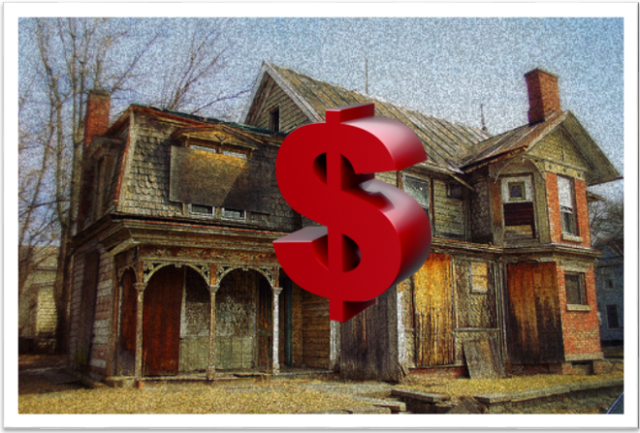 Homeowners often wonder, Can pets hurt a home sale? Here’s a story that will help answer that question.
Homeowners often wonder, Can pets hurt a home sale? Here’s a story that will help answer that question.
Dogs do the darndest things when they're bored. Take Squishy, for instance. Lauren came home late one night from her job as a nurse to find that Squishy –her usually well-mannered dog – had torn her sofa to shreds, right down to the woody skeleton. Squishy had enough time to not only disassemble the sofa but also to chew up the living room baseboards. While a ruined sofa won't impact a home's value, gnarled-on baseboards most definitely will.
Americans Love Their Pets
Over 43 million American households own a dog, and over 36 million own at least one cat, according to the American Veterinary Medical Association. It's unclear how many of these households are owner-occupied and how many rented, but since 65.5 percent of Americans own their homes, it's probably safe to say that many pet owners are also homeowners.
The various dog-shaming websites prove that pets behaving badly is sometimes funny – especially if it's someone else's pet acting up. When it's your cat or a neighbor's pooch committing the atrocities, though, you may pay dearly with a lowered resale value on your home.
Impact on Home Value
Time business and money writer Brad Tuttle claims that pets "can potentially do pretty much the same thing to your home's value that some pets do on the rug." He goes on to credit a New England real estate agent for determining that owning a pet may have a negative impact on your home's resale value.
As evidence, the agent cited a cat owner's condo that sold for up to $30,000 less than it should have because of damage caused by the pets.
Then, there's the noise factor. Whining, barking dogs in a neighborhood can bring down resale home values by between 5 to 10 percent, Appraisal Institute's Richard L. Borges tells Business Insider.
There isn't much you can do about a neighbor's dog, but there is plenty you can do about your own.
De-Pet Your Home
Just as you'll need to clean and declutter your home before it goes on the market, you'll also need to de-pet it. This involves getting rid of not only any damage the pet has caused, but also the hair, stains and, most of all, odors.
Start by getting rid of the hair. You'll need a heavy-duty vacuum for the job. Consider having the upholstered furniture dry-cleaned, launder or dry-clean the drapes, and shampoo the carpets.
Carpet: The Stink Magnet
Cat urine in the carpet is one of the hardest odors to get rid of, according to Neeraj Gupta, director of product research and development at ServiceMaster Clean. "Oftentimes," he tells MSN's Marcie Geffner, "you have to remove the carpet, remove the pad and seal the floor, and then replace the carpet and the pad."
If you think you can fix the problem by shampooing the carpet, you may want to pay close attention to those areas your pet chooses to use as a restroom.
First, though, you'll need to find those spots. Christopher Solomon of MSN Real Estate says that not all of the spots will be visible to the naked eye. He suggests that you consider purchasing a battery-powered ultraviolet light – also known as a black light. They are inexpensive and, used in a totally dark room, can pinpoint every bodily fluid that has landed on the carpet.
Other Flooring
If you have a hard-surface floor, you may think you've squeaked by the pet-odor problem. Think again. Even some hard surfaces can absorb urine. You'll need a chemical deodorizer and cleaner to rid the floor of the odor. If it lingers, you may need to strip and repaint, varnish or otherwise seal the floor.
Walls
If you own a dog, you are probably familiar with how they seem to love rubbing against the walls. Walk through your home with your eyes cast on walls and interior doors at doggy height and you'll no doubt notice discolored areas. Sometimes a Magic Eraser will remove the marks. If you've lived in the home for a long time, you may need to repaint to remove the doggy odor.
Cats like walls too – especially male cats, who tend to spray vertical surfaces, such as the backs of chairs and walls, according to the experts at Cornell University, College of Veterinary Medicine. Ask your veterinarian what she recommends to clean and deodorize the walls.
Showings
Your real estate agent will suggest that you not be home during showings. There are a number of reasons for this, but the most significant is that buyers are more relaxed if the homeowner isn't hanging around.
The National Association of Realtors® suggests removing the pet from the home during showings as well. If you'll be home, this is easy, just take the dog for a walk or drive.
If you will be working during showings, you'll need to come up with an alternative for your pet. Here are a few places to take your dog during showings:
Doggie Daycare – This one is ideal. The dog gets a day of socializing and playing, and potential buyers get to tour the home in solitude.
Groomer – An obvious win-win.
Veterinarian – Use the opportunity to get the dog or cat a checkup and shots.
Professional Dog Walker – Hire a dog walker to remove the dog from the home during showings.
Life is chaotic and full of unexpected events when your house is on the market. It's important to remain flexible and accommodate last-minute showings if you want to get the home sold. While pets may be members of the family, they are distractions to buyers, so it's important to decide beforehand how you'll deal with them while the home is for sale.
If you have any questions about selling a home or any other real estate questions for the Sullivan & Sullivan team, please contact us here.
